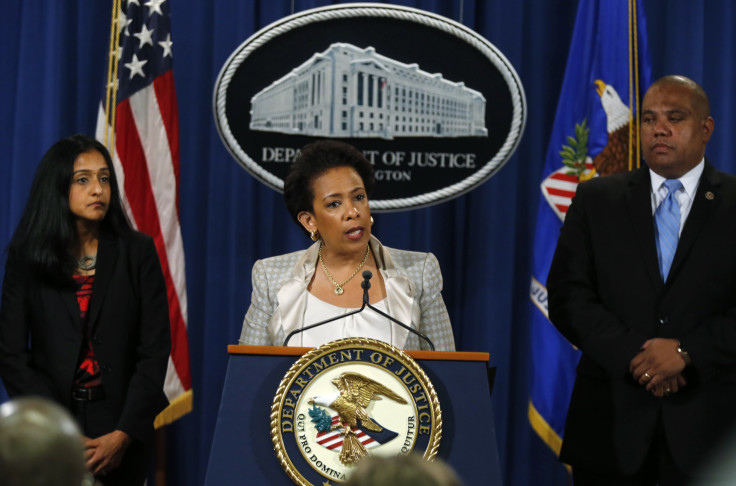After Oklahoma City Rape Trial, Gender-Biased Policing Guidance For Law Enforcement Released By Justice Department

The U.S. Department of Justice announced Tuesday new guidance to discourage gender-biased police responses when women who are victims of sexual assault or domestic violence report crimes to law enforcement. In the eight guidelines released by Justice Department leaders, training is recommended for police officers to combat biases, assumptions and stereotypes about rape and domestic violence victims, which have been known to jeopardize criminal investigations, advocates said.
The guidelines also stress that police departments hold officers who commit sexual assault or domestic violence accountable for their offenses. The announcement comes less than a week after a police officer in Oklahoma City was found guilty of raping more than a dozen local black women who were targeted because of their vulnerability or criminal record.
“Sexual and domestic violence is a heinous crime, inflicting physical and emotional trauma that can linger for years, with grave consequences for survivors and their loved ones, for neighborhoods and communities and for our country as a whole,” Attorney General Loretta Lynch said Tuesday at a press conference about the new guidance. “While the brunt of sexual and domestic violence is borne disproportionately by women and LGBT individuals, make no mistake: It is an affront to us all.”
The guidance also comes after several Justice Department probes into gender-biased policing in New Orleans, Puerto Rico and Missoula, Montana, where authorities found police officials failed to properly investigate sexual assault cases or to discipline police officers who committed those offenses. The probes resulted in agreements between the Justice Department, police leaders and the local communities to increase victims’ services, among other reforms. “In order to collectively advance the type of victim-centered and trauma-informed response to sexual violence so vital to protecting public safety, we need to proactively identify and address harmful stereotypes based on one’s gender, gender identity, sexual orientation or race,” Vanita Gupta, head of the Justice Department’s civil rights division, said Tuesday.
In Oklahoma City, a jury last Friday found former Officer Daniel Holtzclaw guilty on 18 charges that included rape and other sexual assault-related offenses. Some of his 13 accusers, all of whom were African-American women, said Holtzclaw used his authority to force them into sexual acts. Some of the assaults took place in 2013, according to victims. The Holtzclaw case highlighted a national problem of sexual assault committed by officers. In November, an Associated Press investigation into sexual misconduct by police officers in the U.S. found nearly 1,000 lost their jobs over a six-year period for rape and sexual assault.
When assaults are clearly qualified as criminal activity, many victims and survivors who pursued their own cases have said they faced disbelief, victim-blaming and hostility from law enforcement, advocates have said. Domestic violence-related 911 calls constitute the largest category of calls received by police, according to experts.
The Justice Department’s new guidance calls on police departments to “treat all victims with respect and employ interviewing tactics that encourage a victim to participate and provide facts about the incident.” Officers should also ensure they are appropriately classifying reports of sexual assault and domestic violence, according to the guidance.
The announcement was welcomed Tuesday by national civil rights and anti-violence groups, many of whom sent a letter to Lynch in June requesting solutions to gender-biased policing. “How police officers respond to domestic violence and sexual assault has a huge impact on the lives of women, families, and communities across the United States,” Sandra Park, senior staff attorney with the American Civil Liberties Union’s Women’s Rights Project, said in a statement. “Police practices can either help end the cycle of violence or they can perpetuate it,” she added.
© Copyright IBTimes 2024. All rights reserved.












